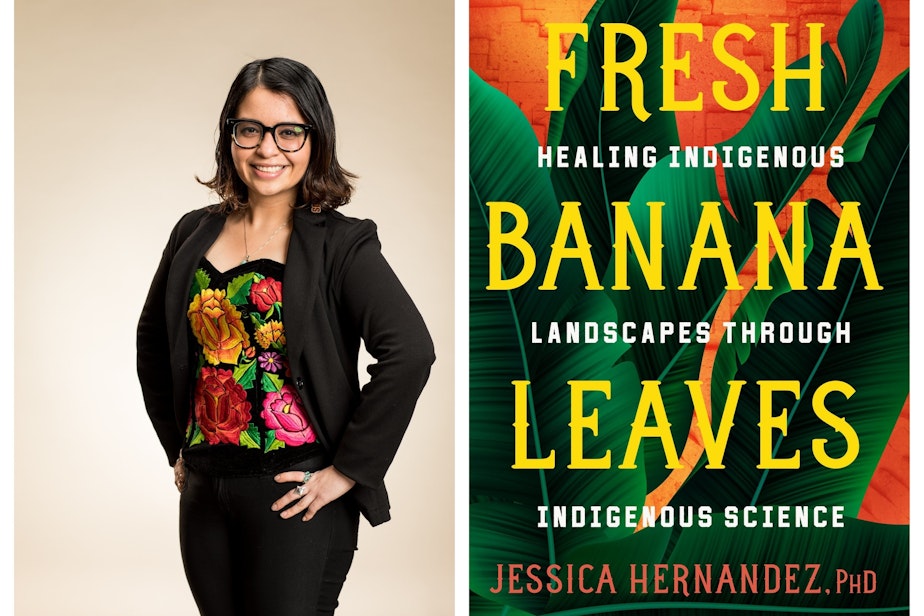An environmental scientist points to Indigenous knowledge for sustainability solutions

There is scientific consensus that human civilization is a threat to life on Earth. Efforts are underway to alleviate that threat, but there is much doubt over whether we can turn back our cascading environmental impacts. Every day, our consumer and industrial practices lead us closer to a tipping point. What will it take to move us from potential disaster to sustainability?
In her new book Fresh Banana Leaves: Healing Indigenous Landscapes Through Indigenous Science, environmental scientist Jessica Hernandez points to Indigenous knowledge and history for answers. The fact that the colonizing civilizations which came to threaten Earthly survival attempted to erase Indigenous people is a subtext to Hernandez’s work. She speaks here of survivors’ efforts to heal from genocide.
Indigenous communities are especially at risk from climate change. Can the conquerors somehow retreat from their excesses, learn from the vanquished, and together forge a sustainable path forward? Hernandez is part of a movement intent on guiding contemporary scientists and cultures, long dismissive of Indigenous wisdom, toward such a transition. Their vision would realize holistic methods of land, water, and forest management, thereby restoring a more natural human relationship with Earth.
Jessica Hernandez is a Seattle-based Indigenous scholar, scientist, and community advocate. She speaks here with Claudia Castro Luna, Seattle’s first Civic Poet, and a former Washington State Poet Laureate, who teaches now at Seattle University.
The Elliott Bay Book Company presented this event on February 18, 2022. Elliot Bay’s Rick Simonson introduced the program.




